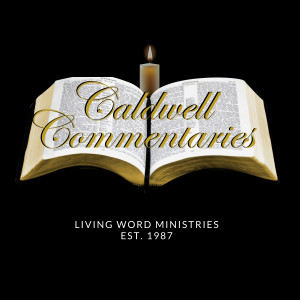
The Caldwell Commentaries Podcast
Religion & Spirituality

In Acts 7:38 to 43, Stephen shifted from demonstrating his respect for Moses to demonstrating his respect for the Law. He was again claiming "not guilty" to the charge brought against him that he blasphemed the Law. He affirmed his absolute faith in the Law by declaring God was its Author and Moses its recipient.
In summarizing the final 40-year period of Moses' life, Stephen went on the offensive. He reminded the Council how quickly Israel had turned her heart back to Egypt and her "gods" once Moses ascended Mount Sinai. With him out of sight, they readily dismissed the very one who delivered them. Stephen's point was that this was exactly what Israel's religious rulers did. The One Who came and did the work of deliverance for them was now also "out of sight" - for He had ascended much higher than Mount Sinai! They turned from the Prophet like unto Moses, their Messiah, and were, in effect, clinging to the works of Aaron's hands, pictured by their whole priestly system of Judaism. With the completed atonement work of Christ, Judaism was a dead religion. The reality had come, so the patterns and shadows were no longer needed. But the hearts of Israel's leadership were focused on the world (Egypt) - and Stephen said, they "rejoiced in the works of their own hands" (Acts 7:41). They did not worship God; they worshipped a "god" of their own making.
It was the members of Israel's High Court who broke the Law, just as their forefathers had done at Sinai and throughout their entire history!
More Episodes
Create your
podcast in
minutes
- Full-featured podcast site
- Unlimited storage and bandwidth
- Comprehensive podcast stats
- Distribute to Apple Podcasts, Spotify, and more
- Make money with your podcast
It is Free
- Privacy Policy
- Cookie Policy
- Terms of Use
- Consent Preferences
- Copyright © 2015-2024 Podbean.com







